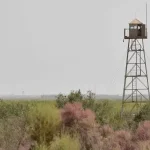Date: May 28; Year: 1998; Location: Raskoh, Chaghi, Balochistan.
Pakistanis around the country witness the first successful Nuclear Test, with loud chanting of ‘Allah hu Akbar’, on their TV screens; many joined in the chant, many bowed their heads in thankfulness unto their Allah. ‘Allah is the greatest’, this is the ‘Takbeer’ recited by Muslims around the world; and through the Chaghi tests, Allah has placed the crown of being a Nuclear Armed State on the prideful forehead of Pakistan, and has put terror in the hearts of Pakistan’s enemies, on this day. And with the name of Allah and His Takbeer, do the Muslims take every step on the ladder of their progress; thus, Yom e Takbeer!
The story of a nuclear world starts with the records of the United States’ ambitious Manhattan Project, initiated in 1939, to outrun Germany’s plans to create such an arsenal, the year WWII began. By the very end of World War II, in August 1945, when victory was already tilted towards the United States, and Japan had been defeated on all fronts; the US made the Potsdam Declaration on 26th July, and without due justification, exploded the population of millions with its 2 nuclear bombs on the 6th and 9th of August; an exemplar of barbarism that was to change the course of the military history of the future.
World War II ended in 1945, with a worldwide devastation, numbering to about 75 million fatalities; but mankind was not going to revert from its game of terror and bloodshed, it was going to run faster in the race of weapons and connivance. In 1945, a man, from the Project Manhattan, returned to his home, India; his name was P. S. Gill; India had pursued the nuclear capability right from its inception.
After the partition, Nehru appointed P. S. Gill as the officer on a special duty, for the Indian Nuclear Project, in 1954. P. S. Gill, who had earned a rich experience from the infamous Manhattan project, became the first Godfather of the Indian Nuclear Weapon Design and Production Project. He remained the key player and advisor to Nehru, in the 1950s and 1960s, for India’s Nuclear Weapon Project.
In the year 1968, India refused to sign the Nuclear Non-Proliferation Treaty.
By 1971, India had had 3 major wars with Pakistan, one major war with China, and several intrusions with its other neighbors; one of which resulted in inflicting its neighbor Pakistan, by a proxy “Mukti Vahini” and its forces, who later were able to cut off East Pakistan, making and naming it “Bangladesh”. This was the most serious blow to Pakistan after the Kashmir war of 1948 and the war of 1965. This was the time when Pakistan started thinking about its defence against a covetous enemy, never resting from its ambition to break and destroy Pakistan, and this is the time when the nuclear option was put on the table for the first time, to keep India at bay.
Pakistan put its feet in the nuclear weapon technology in 1972, under the then PM Z. A. Bhutto. Zulifqar Ali Bhutto had said:
“If India builds a bomb, we will eat grass and leaves for a thousand years, even go hungry, but we will get one of our own. The Christians have the bomb, the Jews have the bomb and now the Hindus have the bomb. Why not the Muslims, too, have the bomb? “
In the year 1974, India conducted its first nuclear weapon test, under Indira Gandhi. The strategic balance was changed in the region, and India was emerging as an even more powerful threat for a nation like Pakistan and the whole region. In 1994, June 3rd, India tested its Prithvi medium-range missile. This was a warning of India’s development in short range missiles, which could carry warheads to Pakistan’s cities.
Until 1997, though it had practically put pressure on Pakistan at every possible front, India had never stated, on the diplomatic level, that its missile technology will be used against Pakistan.
June 1997, India moved its missiles near the Pakistani border.
In May, 11th to 13th, 1998, at Pokhran, Rajasthan; India, under PM Vajpayee of BJP (Hindu nationalist-dominated party), conducts underground nuclear weapon tests.
This turned the long-managed balance by Pakistan, even after the 1971 and 1974 events, in favor of India. India, on the other hand, keeping aside all diplomatic norms, started threatening Pakistan.
On March 15th, India’s premier threatened that his country is capable of making a “big bomb” that would be used to defend the country, and threatened Pakistan to concede Azad Kashmir over to it as well.
On March 18th, after the explosions, the Home Minister, L.K. Advani, called on Pakistan to “realize the change in the geo-strategic situation in the region”, and warned its government against trying to intensify a separatist Muslim insurgency in the Indian-controlled part of Kashmir.
Pakistan was being struck, not only with a threat to its sovereignty, and a threat of an all-out nuclear bombing of its civilian populace; but with a threat of a permanent diplomatic hegemony of an utterly unreasonable neighbor, an unsafe future for its generations and a passive position in regional affairs. Pakistan was cornered, it was time to react, it was time to strike the enemy and win back the moral uprightness of the people of the nation.
It was the right time to bounce back, the World community had not condemned or stopped India from conducting these tests; Pakistan had a choice to either present its plea to the United Nation’s ever-indecisive courts, or conduct its own tests and stand tall in the community of nations. Pakistan’s nuclear tests, perhaps, were a symbol for all the weak ones across the globe, and in particular the Muslims world, who were all the more eager and enthusiastic for the decision of Pakistan to conduct its nuclear tests.
Pakistan was under the premiership of M. Nawaz Shareef at that time. He was under immense pressure, threats, and luring offers from the West to the East; only a few stood by Pakistan at that time, he had to take the decision, and the decision he took!!
On March 19th, Nawaz Sharif, in a nationally broadcasted speech, said: “You must have heard today that they are discussing their aggressive designs toward Kashmir. By the grace of God, we are prepared for any trial, and the whole world knows that Pakistan has the ability to defend itself.”
At last, that sacred moment came, when Pakistan arose to new heights, showing defiance in the face of tyranny, in a world ruled by tyrants! At last, Pakistan bounced back, and bounced back hard!!
On May 28th, 1998, at Raskoh, Chaghi, Balochistan; Pakistan announced that it had successfully conducted five nuclear tests. These tests pridefully established Pakistan as a capable nuclear power of the world; Pakistan is the sole nuclear power in the entire Muslim Ummah. This day has been celebrated as Yom e Takbeer.
Questions are often raised around the world upon Pakistan and its nuclear program. Being a sovereign nation, it is in Pakistan’s prime national interest to keep this arsenal ready. But Pakistan’s peaceful ambitions, and its right to defense and deterrence over its stubborn opponents, is portrayed negatively in world mainstream media and political fronts. Many have tried to have Pakistan declared a ‘terrorist state’ and that their nuclear arsenals are in ‘un-safe hands’. Many, who are friends of India, instigate and finance terror into Pakistan, and after that, put all their stakes in maligning Pakistan’s image in the global community, making it difficult for Pakistan to progress economically and reach out to more in way of friendship and cooperation.
Perhaps the real questions are not those raised by others, perhaps the real questions are the ones every Pakistani needs to ask himself; is Pakistan a war-mongering nation? Does Pakistan have hegemonic ambitions over its regional neighbors? These questions have become a necessity as being subject to mainstream media; the Pakistani has been demoralized and cornered into a depressed, sadist state.
And the answer to this question lies in digging into some more questions; would we be safer without the nuclear bomb? Has Pakistan ever attacked or tried to occupy an inch of soil of any of its neighbors? Look around you, does the world give to beggars or is ‘might the right’ in this ever-competitive world? Are economic sanctions and more aid to be sought or are self-dignity, freedom and respect in the global village to be sought?
The Nuclear Sword of Pakistan, along with its brave Army and its resilient populace, was a necessity and is a source of pride and power for Pakistan and its friends. It is fit to give this message to India on the Yom e Takbeer:
“Don’t worry, India! We will not strike first, because we are not warmongers but peaceful people; but if you strike, we will not waste a wink of an eye to strike back”.
May Allah be the savior of Pakistan and protector of its people.
Pakistan Zindabad! Islam Paindabad!








